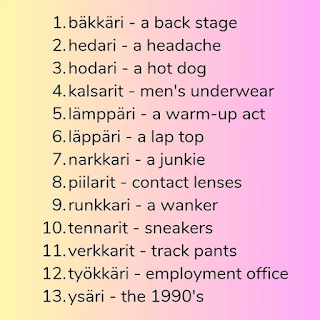With positive or neutral words, ihan means quite, just.
The most important thing is that you don't say ihan kiva, ihan hyvä or ihan kaunis when you really mean tosi kiva, tosi hyvä or todella kaunis.
Oh, in case you wonder: ihana means lovely and wonderful, and I don't think it has anything to do with ihan.
- Se on ihan OK opettaja. - She's an OK teacher.
- Se oli ihan kiva näytelmä. - It was a quite nice play.
- Mun isäpuoli on ihan mukava. - My stepfather is quite nice.
- Mun tentti meni ihan hyvin. - My exam went just fine.
With negative and super positive words, ihan means very, really, absolutely.
(If you are bored with ihan, you can also use aivan with negative and super positive words.)
- Se elokuva oli ihan mahtava! - The movie was absolutely awesome!
- Tämä on ihan uskomattoman hieno asia! - This is an unbelievably great thing!
- Tämä paita on ihan liian pieni. - This shirt is absolutely too small.
- Se mun deitti oli ihan kamala! - The person I met on a date was absolutely horrible!
Ihan in vulgar expressions
- Tää puhelin on ihan paska. - This phone is a total piece or crap.
- Tää on ihan perseestä. - This totally sucks.
- Tää oli ihan helvetin huono idea. - This was a very bad idea.
- Read more about swearing in Finnish here: http://randomfinnishlesson.blogspot.com/2020/05/how-to-swear-in-finnish.html
Common expressions with ihan
- Mä tuun ihan pian. - I'll come in a minute.
- Ollaan ihan hiljaa. - Let's be quiet.
- Ihan sama! - Whatever!
- Ihanko totta? - Really?
How to avoid the whole word
If you want to say that something is quite something, use aika.
- Tämä kurssi vaikutttaa aika mielenkiintoiselta. - This course seems quite interesting.
- Read my post about aika: https://randomfinnishlesson.blogspot.com/2013/02/aika.html
If you want to say that something is really something, use todella or tosi.
- Tämä kurssi vaikuttaa tosi mielenkiintoiselta! - This course seems very interesting!
- Tämä oli todella halpa. - This was really cheap.
- Meillä oli tosi kivaa. - We had a really good time.
- Read my post about todella and tosi: https://randomfinnishlesson.blogspot.com/2014/08/tosi-todella-oikeasti.html
Oh, in case you wonder: ihana means lovely and wonderful, and I don't think it has anything to do with ihan.






.png)




